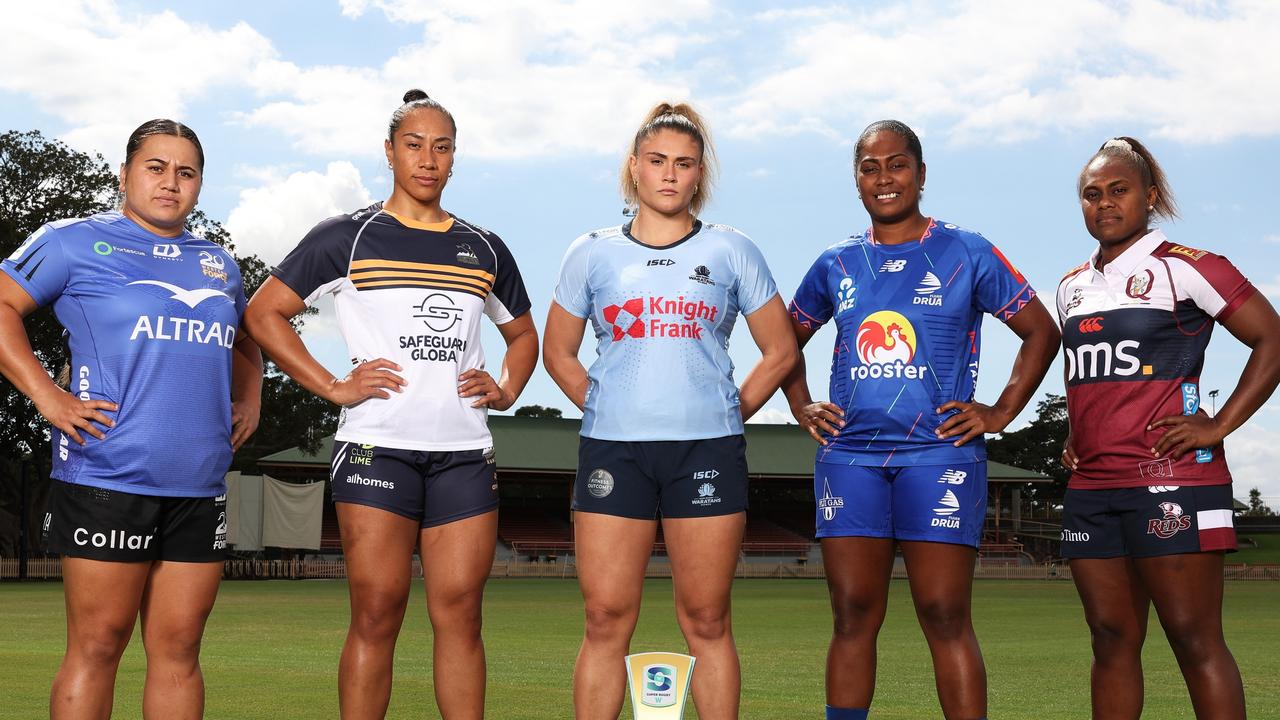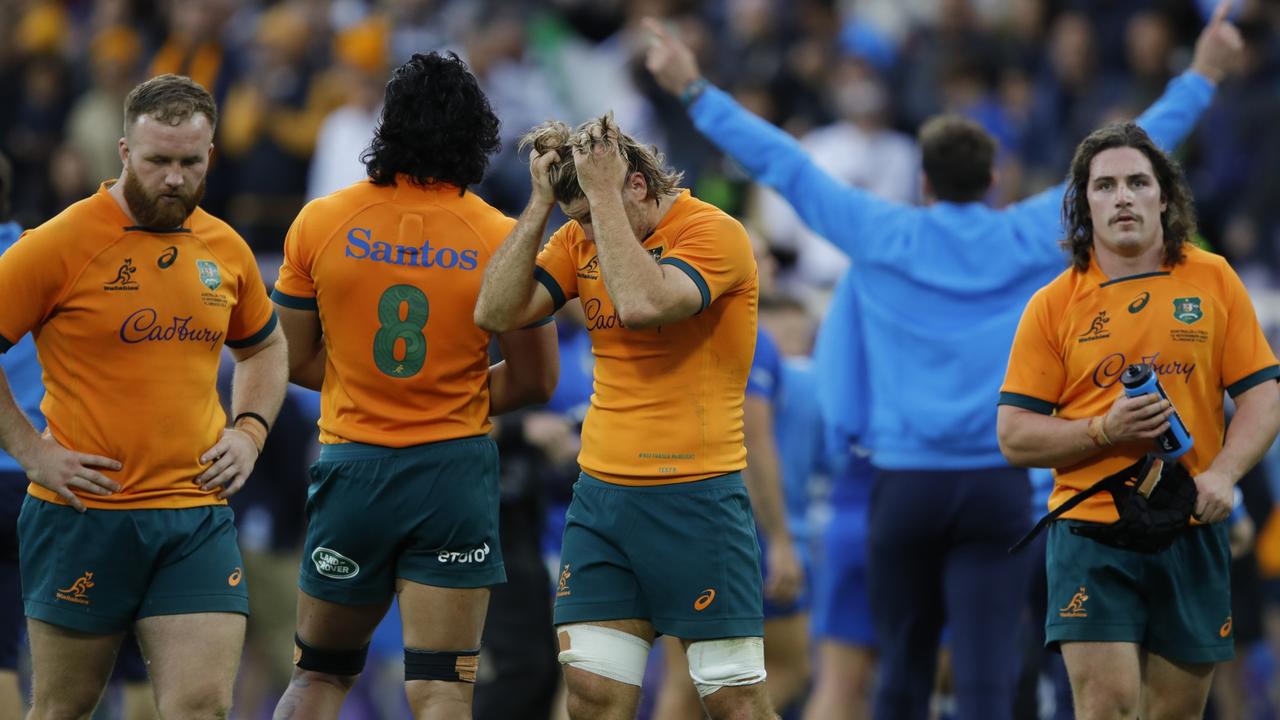The red lights are flashing around Australian rugby
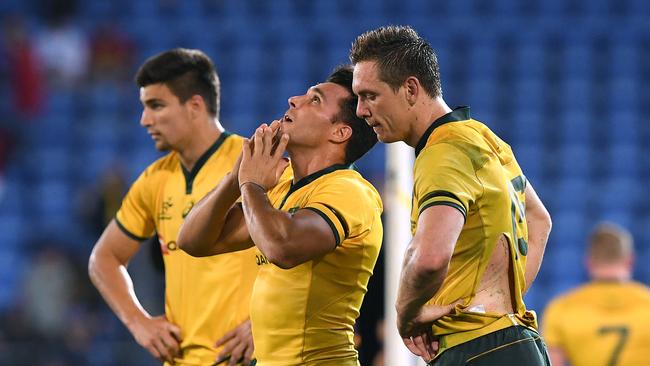
Post Argentina, it is hard to know where to turn in relation to the Wallabies. I don’t want to add to the team’s misery, but we have hit rock bottom. Seventh in the world.
No result should pitch and turn on one pass! It is easy to condemn Israel Folau for failing to pass right at the death, but he was also responsible for a magnificent piece of individual rugby in scoring, early on, a glorious try.
But individual performances don’t win Test matches. It is the team that wins. And the Wallabies lack this sense of team — not in spirit, but in execution.
There is an absence of skill in transferring the ball from one player to another. Possession is surrendered or wasted. The red lights are flashing.
The trouble is, there is no one in the administration of the game who knows enough about the game to be able to evaluate what should happen next.
Michael Cheika is on his own. Raelene Castle is clueless. And again, we come back to this issue of putting someone in charge of the game who knows nothing about the game.
But it gets worse. It is said there were 16,000 fans at the match on the Gold Coast. Many say there were fewer than that.
The TV audience was so low it did not make the top 20 programs on Saturday night. The Wallabies, on TV, were beaten by re-runs.
What, then, is to happen to the TV rights deal? Fox Sports and Channel 10 forked out $275 million in 2016 for four years. That expires in 2020.
Many of the Super Rugby games are in the middle of the night in South Africa and Argentina. The television ratings on Fox and free-to-air are anything but good.
Fox has agreed to billion-dollar deals with cricket, rugby league and AFL. They can’t be expected to buy everything.
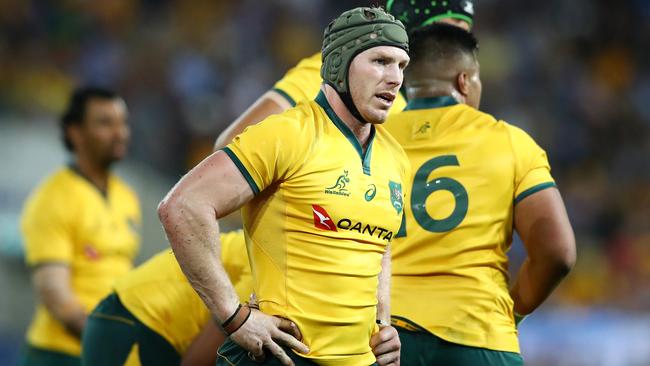
Which prompts the question: how much, in the current climate, are the rugby union rights worth?
And where does Rugby Australia head if the rights are worth half of what they are now?
Saturday night didn’t pay the expenses. If we can’t improve our international performance, the TV rights deal will see rugby suffer a massive financial hit.
Where to from there? For all the post mortems, the reality is that last Saturday night Argentina had two brilliant tries disallowed. They were the better side.
Now we head off into difficult territory — away games in South Africa and Argentina.
There are problems about selection and how we play the game. These are very subjective things. Every person would pick a different team if they had the chance and I suppose people would decide to play the game differently.
But I do not know why Matt Toomua was taken off. Bernard Foley was brought on and missed a conversion which Toomua, I am sure, would have nailed. Toomua provided some rhythm and stability in the backline.
We have to find a team and stick to it. But we cannot win international rugby games with two short people at the back of the lineout.
And we certainly cannot win playing pick and drive rugby.
But if you have an administration who knows nothing about the game, who is evaluating what needs to be done to turn this around?
Towards the end of the Fox Sports broadcast, former Wallaby Phil Kearns was communicating his frustration about the Wallabies’ performance when he blurted out a broadside about schoolboy rugby in Australia.
He seemed to be making a point that our schoolboy players are overcoached and that all their creativity is stifled by coaches using cookie-cutter tactics.
Hardly an appropriate comment, in the light of what we saw on the paddock on Saturday night.
I do not agree with Kearns if he was taking a pot shot at schoolboy coaching.
Most of the big independent schools are producing extremely creative teams and players. It is a joy to watch.
Some of these coaches are certainly better, in my opinion, than those in charge of some Super Rugby sides.
Indeed, we could do no worse than recruit some of these into coaching at a higher level. It is not schoolboy coaches who are killing creativity.
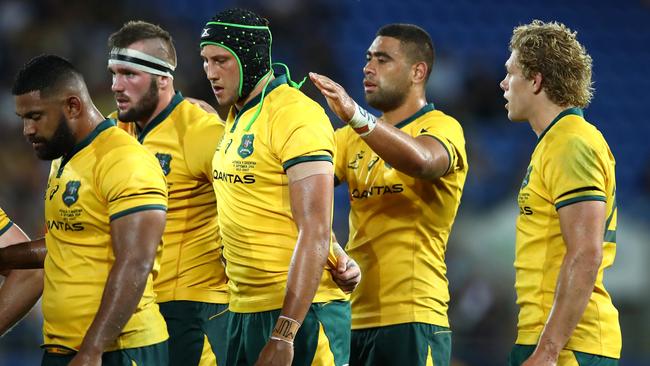
If a Kurtley Beale, a Matt Toomua and an Israel Folau have to wait until three forwards handle the ball before they get a look at it, there is not much point being very creative.
Make no mistake, if Australian rugby did not have schools churning players out, against the odds I might add, in the face of stiff competition from Australian football and soccer, we would be up the creek without a paddle.
That does not mean that Australian Schools Rugby cannot do a lot more to support the game.
I have said before that a feature of New Zealand Rugby is their commitment to put self-interest aside in order to put the All Blacks first.
But then, of course, the national side has to be the right model. There is no use copying a flawed template.
Currently, the Australian Schools Rugby Union and the various associations are making selfish decisions that are not aligned with the needs of the Wallabies.
Rugby Australia should take a couple of steps to get the big rugby schools better aligned with the national cause.
The first step is that Australian Schoolboys must be successful. How can we produce successful under-20 sides and Wallaby programs if we are developing future Wallabies who know little about winning.
Over the past 10 years, our Australian Schoolboys have a 15 per cent strike rate against New Zealand and England. They mask their mediocrity by playing Tonga, Fiji and Samoa to get some wins.
To prepare to beat New Zealand in the term three break in September, our big schools should be playing competitive games all through term three so our players are match-ready. Instead, in NSW at least, the GPS and CAS competitions finish halfway through term three, so most of our best schoolboy players will face New Zealand schools without having played a match in more than six weeks.
This is dumb. The New Zealand national schools competition is just finishing.
Their players are in great form. They are battle-hardened. Our boys are starting way behind the eight-ball.
The second point I would make is that the Australian Schoolboys Rugby Union insists on teachers selecting and coaching the national team.
In New Zealand, the selecting and coaching is done by the professionals in their five Super Rugby franchises. But, of course, you have to have the right people in charge of those franchises.
New Zealand has worked hard to get smart and professional coaches on their payroll and they operate right throughout the system. In New Zealand, all the player information is gathered at schoolboy trials. It is then kept and shared with the provinces and the national body.
But if there is a good young scrum half in Taranaki, all the key people in New Zealand Rugby are aware of him and a pathway is created for him to develop.
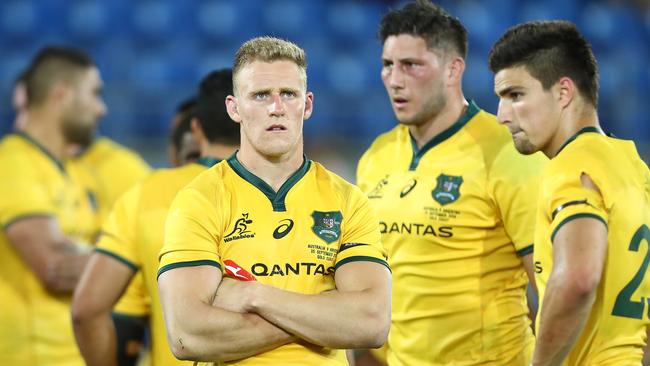
It is not rocket science. It is just called “a pathway”. The player is not lost to other sports. And finally, we have to overhaul our selection model for the Australian Schoolboys.
The competition model, as I call it, is outdated. It forces our best young schoolboy players to play four matches in a week on bone-dry surfaces and then someone miraculously picks out “the best”.
Can you imagine the physical toll this model takes on players?
In New Zealand and England, this model was binned years ago, replaced with camp models, where professional coaches work with the top four or five players in each position in the country.
And by working closely with the players, these coaches quickly get to know the capability and capacity of each player and selection is far more accurate.
The players still play a game during camp, but their welfare is the main priority. And 99 per cent of the time, the best players are selected and they are fit and healthy and ready.
All these things are achievable if someone in the administration even knew about them. And if they do not know, they should hand in their resignation ticket.
We are in desperate times. Do we have people running the game who would rather hang on to power and keep their membership of the “club”, even though they know things are spiralling out of control? Far from providing an answer to the mess, Castle is merely adding to it, because of her failure to understand it.
Australian Rugby is at the crossroads. We are broke and we don’t know it. We are impotent and we don’t know it. And the Australian public has given up on the game. Bold initiatives are needed in administration, in staffing, in player selection and in on-the-paddock execution.
None of this should be difficult.
Alan Jones is a former coach of the Wallabies and hosts The Alan Jones Breakfast Show on 2GB and the Macquarie radio network and is host of Jones & Co on Sky News at 8pm on Tuesdays. He will be on leave next week and his column will return on October 5.

